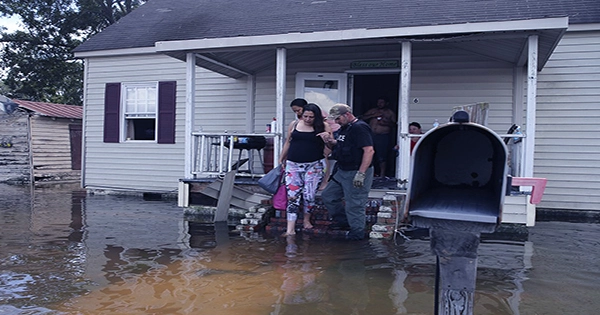The prospect of climatic collapse is already present. Extreme weather events, such as floods, storms, and heat waves, have been more common in recent years and will continue to do so as the climate crisis worsens. However, not all communities are equally affected. According to research published in The Lancet Planetary Health, rising insecurity as a result of climate change would likely increase incidents of violence against girls, cis straight women, and members of the LGBTQ+ community.
“Extreme events do not generate gender-based violence; rather, they intensify the causes of violence or create conditions that facilitate this sort of behavior,” said main author Kim van Daalen, a Gates Cambridge Scholar at the University of Cambridge’s Department of Public Health and Primary Care. “Systematic societal and patriarchal institutions that permit and normalize such violence are at the base of this behavior.” Women, girls, and sexual and gender minorities are disproportionately exposed to the negative effects of severe events due to existing societal roles and practices, as well as inequities leading to marginalization, discrimination, and dispossession.”
The frequency of floods has grown by 134 percent in the last two decades. Droughts have increased by 29% while storm frequency has increased by 40%. Studies of catastrophes in the past, such as the aftermath of Hurricane Katrina in 2005, give insight into the types of violence that at-risk groups may face in the aftermath of catastrophic disasters. Following Hurricane Katrina, a study of those domestically displaced in Mississippi found that sexual and intimate partner physical violence against women increased. In the aftermath of the catastrophe, the LGBTQ+ community was also targeted. Same-sex couples were first blamed for the disaster, and subsequently denied relief funding from the Federal Emergency Management Agency.
In post-disaster shelters, LGBTQI persons were subjected to physical assault and threats, and some Trans people were even barred from entering these ostensibly secure spaces. Another case study looked at how a rise in early marriages coincides with disastrous flooding in Bangladesh. Marrying off daughters is considered as a method to relieve the family’s “financial load.”
“Disaster management should concentrate on avoiding, reducing, and adjusting to gender-based violence drivers.” It’s critical that it’s informed by the women, girls, and sexual and gender minority communities who are affected, as well as local sexual and gender customs, norms, traditions, and societal attitudes,” van Daalen noted. Two viable treatments to reduce this risk include providing training to response teams and building shelters that are safe environments for those most at risk. With or without the extra considerations of climate breakdown, working to address the core causes of this violence is critical to preventing it from occurring in the first place.
















